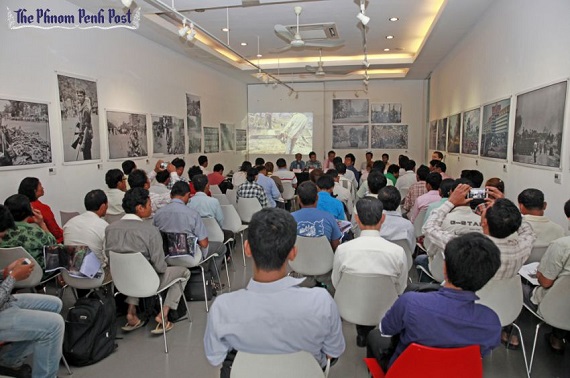Prey Lang network says authorities profit from illegal logging

Political and business elites have been directly involved in and profited from illegal logging in the Prey Lang forest in northern Cambodia, according to a new report from members of the Prey Lang Community Network.
The 142-page study, titled Our Forest Remains Under Destruction and released yesterday, says law enforcement and forest management officials consistently fail to act in the face of illegal activity in the forest, for which they also lack concrete prevention measures.
“The role played by authorities such as police, environmental and forest administration officers is not preventing timber from being transported, but amassing money from illegal timber transporters,” the report states.
According to the report, abuses are found in all of the 33 communes in Prey Lang, with illegal logging exacerbated by legitimate loggers operating outside their licences.
“These illegal acts should be punished under the law,” said Sar Mory, vice president of the Cambodian Youth Network NGO. “They have no right to log, but they log anarchically without anyone stopping them.”
Mory said more than 40 large- and small-scale sawmills involved in the activity have been uncovered, with government officials often complicit.
Ruos Lan, a community representative in Kratie – one of the five provinces the forest extends into – said that while environmentalists have been criticised for aggressive acts such as burning chainsaws, inaction on the part of authorities had forced such radical moves.
He also said complaints that activists did not consult officials before engaging in activities designed to catch forest criminals or stop their work were unfair, given the level of corruption in the area.
“How can we inform them when the offenders are police and commune and village officers? So I want to arrest thieves, do I have to inform those thieves in advance?” he said.
Forestry Administration director Chheng Kimsun could not be reached for comment.
Speaking at a Ministry of Agriculture ceremony on April 8, Prime Minister Hun Sen recently declared forestry crimes a major problem and lamented the inability of authorities to effectively prevent them.
But according to analyst and political aspirant Kem Ley, the key to prevention lies in withdrawing responsibility over the forests from corrupt authorities and handing it to local communities, who should receive incentives such as conservation jobs. “Hand the land back to the communities, they can protect it,” he said.

